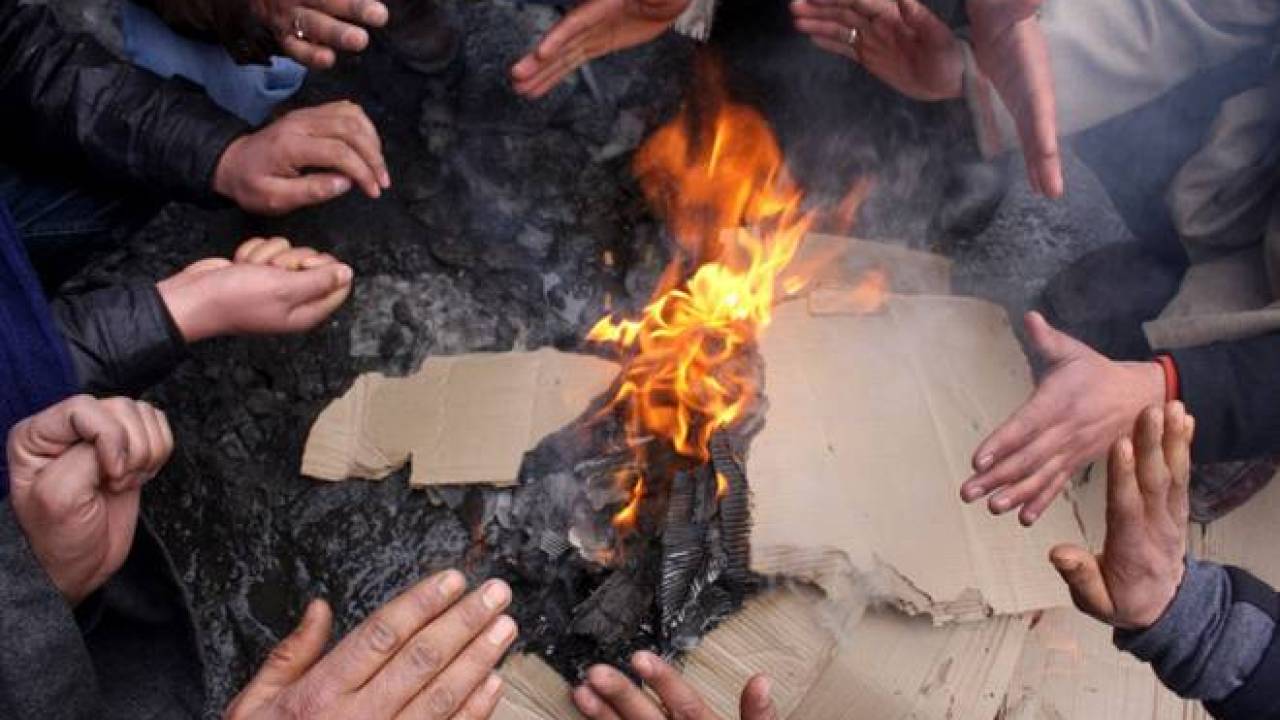SRINAGAR: Severe cold wave conditions continued unabated in Kashmir where the minimum temperature settled below zero, marking a frozen welcome to the New Year.
The sub-zero temperature across the Valley resulted in the freezing of water supply lines and water bodies in several areas, officials said.
The weather remained dry across Kashmir but the valley continued to experience sub-zero nights as the minimum temperature settled several degrees below the freezing point, they said.
The officials said the dry weather brought disappointment to hundreds of tourists at the famous ski-resort of Gulmarg who had hopes of welcoming the New Year amid snowfall.
However, huge icicles formed at various places in the resort, against white-cloaked meadows, presenting a beautiful sight to the visitors who had rushed there in hordes to celebrate the arrival of the New Year, they said.
The resort experienced freezing weather as the mercury there settled at the low of minus 9.0 degrees Celsius Thursday night and was the coldest recorded place in Jammu and Kashmir, the officials said.
The cold weather across the valley resulted in freezing of water supply lines and water bodies in several areas, they said.
Srinagar city — the summer capital of Jammu and Kashmir — recorded a low of minus 6.4 degrees Celsius — down from the previous night’s minus 5.9 degrees Celsius.
Pahalgam, which serves as the base camp for annual Amarnath yatra in south Kashmir, recorded a low of minus 7.8 degrees Celsius.
Qazigund — the gateway town to the valley — recorded the minimum of minus 5.7 degrees Celsius, while Kupwara, in north Kashmir, registered a low of minus 5.6 degrees Celsius and Kokernag, in the south, minus 7.8 degrees Celsius, the officials said.
The MeT office has said while the weather is likely to remain dry over the next two days, there is a possibility of a spell of rain or snow at isolated to widespread places over a few days from Monday.
Kashmir is currently under the grip of ‘Chillai-Kalan’ — the 40-day harshest winter period when a cold wave grips the region and the temperature drops considerably leading to the freezing of water bodies including the famous Dal Lake here as well as the water supply lines in several parts of the valley.
The chances of snowfall are most frequent and maximum during this period and most areas, especially in the higher reaches, receive heavy snowfall.
While ‘Chillai-Kalan’ — which began on December 21 — will end on January 31, the cold wave continues even after that in Kashmir with a 20-day-long ‘Chillai-Khurd’ (small cold) and a 10-day-long ‘Chillai-Bachha’ (baby cold). (AGENCIES)


